open source tool
See the following -
FDA Launches Open Source Tool to Help Capture Data from Patients
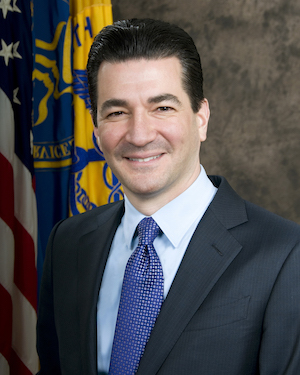 Today the U.S. Food and Drug Administration is announcing the MyStudies app, a new mobile technology to foster the collection of real world evidence via patients' mobile devices. Real world data can be collected from a variety of sources, such as electronic health records, claims and billing activities, and product and disease registries, as well as from patient-generated data including in home-use settings, or from data gathered from other sources, such as mobile devices. As part of the agency's work to foster greater opportunities around real world evidence, the FDA partnered with Kaiser Permanente on a pilot study to measure the functionality and engagement of the MyStudies app.
Today the U.S. Food and Drug Administration is announcing the MyStudies app, a new mobile technology to foster the collection of real world evidence via patients' mobile devices. Real world data can be collected from a variety of sources, such as electronic health records, claims and billing activities, and product and disease registries, as well as from patient-generated data including in home-use settings, or from data gathered from other sources, such as mobile devices. As part of the agency's work to foster greater opportunities around real world evidence, the FDA partnered with Kaiser Permanente on a pilot study to measure the functionality and engagement of the MyStudies app.
- Login to post comments
HLN's Immunization Calculation Engine (ICE) chosen as a Digital Public Goods Standard
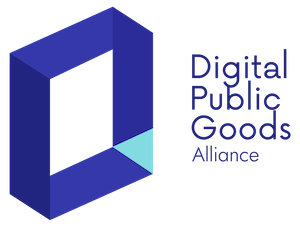 HLN Consulting is thrilled to announce that the Immunization Calculation Engine (ICE) project has been chosen by the Digital Public Goods Alliance (DPGA) as an innovative openly licensed technology and listed in their Digital Public Goods registry. Technologies included in the list are considered to be digital public goods in alignment with the Digital Public Goods Standard. ICE now appears in the Digital Public Goods registry where it is discoverable as a digital public good and reflected on a growing network of catalogs and aggregated lists of digital public goods.
HLN Consulting is thrilled to announce that the Immunization Calculation Engine (ICE) project has been chosen by the Digital Public Goods Alliance (DPGA) as an innovative openly licensed technology and listed in their Digital Public Goods registry. Technologies included in the list are considered to be digital public goods in alignment with the Digital Public Goods Standard. ICE now appears in the Digital Public Goods registry where it is discoverable as a digital public good and reflected on a growing network of catalogs and aggregated lists of digital public goods.
- Login to post comments
Lessons from the Use of Open Source and Open Data in Nepal's Earthquake Relief
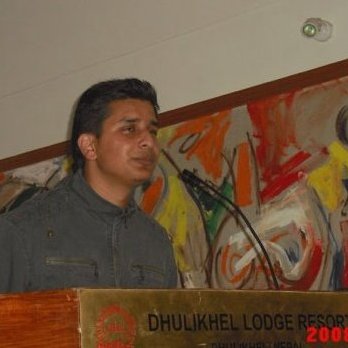 The power of an open source project like OpenStreetMap during a crisis like Nepal's earthquake is undeniable, and I had the opportunity to see it up close and personal. I worked with the Kathmandu Living Labs team, where I observed thousands of local and international volunteers collaborating to create data and tools. Responding agencies used the team's work to plan and execute their operations. The philosophy of Kathmandu Living Labs is that by collaboratively building upon existing work, we will reach much further and have a far greater impact than working on problems individually and from scratch...
The power of an open source project like OpenStreetMap during a crisis like Nepal's earthquake is undeniable, and I had the opportunity to see it up close and personal. I worked with the Kathmandu Living Labs team, where I observed thousands of local and international volunteers collaborating to create data and tools. Responding agencies used the team's work to plan and execute their operations. The philosophy of Kathmandu Living Labs is that by collaboratively building upon existing work, we will reach much further and have a far greater impact than working on problems individually and from scratch...
- Login to post comments
My Open Source Journey With C From A Neurodiverse Perspective
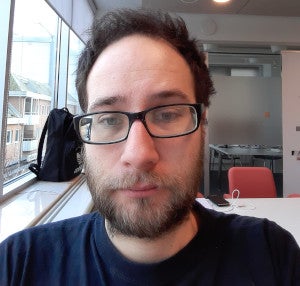 Gaming is a big industry. Some studies suggest neurodiverse kids may be even more focused on gaming than other kids. I would tell a neurodiverse high school or college kid that If you learn C, you may be able to learn the basics of, for example, writing efficient drivers for a graphics card, or to make efficient file I/O routines to optimize their favorite game. I would also be honest that it takes time and effort to learn, but that it's worth the effort. Once you learn it, you have greater control of things like hardware. For learning C, I recommend a neurodiverse kid to install a beginner-friendly Linux distro, and then find some tutorials on the net. I also recommend breaking down things step by step, and drawing diagrams of, for example, pointers. I did that to better understand the concept, and it worked for me. In the end, that's what it's about: Find a learning method that works for you, no matter what teachers and other students may say, and use it to learn the open source skill that interests you. It can be done, and anyone can do it.
Gaming is a big industry. Some studies suggest neurodiverse kids may be even more focused on gaming than other kids. I would tell a neurodiverse high school or college kid that If you learn C, you may be able to learn the basics of, for example, writing efficient drivers for a graphics card, or to make efficient file I/O routines to optimize their favorite game. I would also be honest that it takes time and effort to learn, but that it's worth the effort. Once you learn it, you have greater control of things like hardware. For learning C, I recommend a neurodiverse kid to install a beginner-friendly Linux distro, and then find some tutorials on the net. I also recommend breaking down things step by step, and drawing diagrams of, for example, pointers. I did that to better understand the concept, and it worked for me. In the end, that's what it's about: Find a learning method that works for you, no matter what teachers and other students may say, and use it to learn the open source skill that interests you. It can be done, and anyone can do it.
- Login to post comments
Open Source Machine Learning Tool Could Help Choose Cancer Drugs
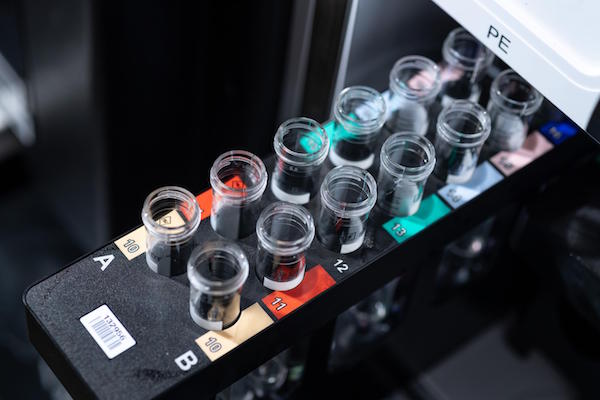 The selection of a first-line chemotherapy drug to treat many types of cancer is often a clear-cut decision governed by standard-of-care protocols, but what drug should be used next if the first one fails? That's where Georgia Institute of Technology researchers believe their new open source decision support tool could come in. Using machine learning to analyze RNA expression tied to information about patient outcomes with specific drugs, the open source tool could help clinicians chose the chemotherapy drug most likely to attack the disease in individual patients. In a study using RNA analysis data from 152 patient records, the system predicted the chemotherapy drug that had provided the best outcome 80 percent of the time.
The selection of a first-line chemotherapy drug to treat many types of cancer is often a clear-cut decision governed by standard-of-care protocols, but what drug should be used next if the first one fails? That's where Georgia Institute of Technology researchers believe their new open source decision support tool could come in. Using machine learning to analyze RNA expression tied to information about patient outcomes with specific drugs, the open source tool could help clinicians chose the chemotherapy drug most likely to attack the disease in individual patients. In a study using RNA analysis data from 152 patient records, the system predicted the chemotherapy drug that had provided the best outcome 80 percent of the time.
- Login to post comments
OSEHRA To Hold Innovation Webinar on Open Source Clinical Quality Tools
 OSEHRA is going to be holding a special one-hour Innovation Webinar tomorrow as part of the National Health IT Week. The focus will be on open source applications and tools that are gaining traction for clinical quality measures. Well known and very mature is popHealth. The webinar participants will discuss the latest upgrades in version 5.0 of the software. They will also present a new entrant into the field. That would be the Cedar project, an open source tool for testing the strength of Electronic Clinical Quality Measure (eCQM) collection systems that receive Quality Reporting Document Architecture (QRDA) files.
OSEHRA is going to be holding a special one-hour Innovation Webinar tomorrow as part of the National Health IT Week. The focus will be on open source applications and tools that are gaining traction for clinical quality measures. Well known and very mature is popHealth. The webinar participants will discuss the latest upgrades in version 5.0 of the software. They will also present a new entrant into the field. That would be the Cedar project, an open source tool for testing the strength of Electronic Clinical Quality Measure (eCQM) collection systems that receive Quality Reporting Document Architecture (QRDA) files.
- The Future Is Open
- Login to post comments
Open Source Tools for Electronic Clinical Quality Measures
OSEHRA is pleased to host this special one-hour Innovation Webinar in conjunction with National Health IT Week. Participants will hear an update from OSEHRA Leadership and Organizational Members on a range of open source software applications and tools. Topics include an update on v5.0 of popHealth® as well as products that are newly engaged within our community like Cedar- an open source tool for testing the strength of eCQM collection systems that receive Quality Reporting Document Architecture (QRDA) files.
- Login to post comments